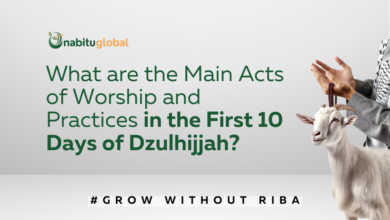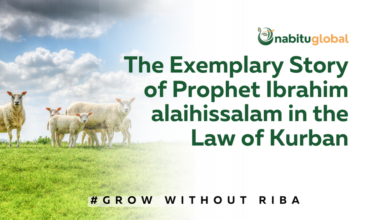The Wisdom of Hajj: Journey Beyond Rituals
Hajj, the annual Islamic pilgrimage to Mecca, is one of the five pillars of Islam, core principles that shape the lives of Muslims. This pilgrimage is more than just a ritual; it’s a transformative experience that serves as a training ground for Muslims to refine their character, strengthen their faith, and build a more fulfilling life.
While literally and technically defined as the pilgrimage to the Kaaba, Hajj holds a deeper meaning. It offers Muslims a meaningful experience that goes beyond just the rituals. The Hajj serves as a way to teach important Islamic values and helps pilgrims become more devoted and well-rounded individuals. Let’s explore the wisdom (hikmah) behind Hajj:
- Submission to Allah ﷻ: One of the central themes of Hajj is submission to Allah ﷻ’s will. This concept is deeply ingrained in the pilgrimage’s acts, such as Tawaf (circumambulating the Kaaba), Wuquf (standing in prayer at Arafat), Sa’ay (running between Safa and Marwa), and shaving the head. By performing these rituals with complete surrender, pilgrims strengthen their connection with God and cultivate a habit of obedience.
- Unity and Brotherhood: Hajj transcends cultural and socioeconomic differences. During the pilgrimage, Muslims from all walks of life unite in a shared experience, dressed in simple Ihram garments. This uniformity fosters a powerful sense of brotherhood and belonging, reminding pilgrims of the global Islamic community. The Prophet Muhammad (peace be upon him) emphasized the importance of maintaining peace and unity during Hajj, highlighting the destructive nature of conflict on this sacred occasion.
- Patience and Perseverance: Hajj can be physically and mentally demanding. The rituals involve long periods of standing, walking, and supplication. These challenges are not meant to be punitive but rather to cultivate patience and perseverance, qualities essential for navigating life’s difficulties. Overcoming these obstacles strengthens a pilgrim’s resolve and teaches them to find solace in faith during trying times.
- Generosity and humanitarian aid: Hajj embodies the Islamic principle of helping those in need. The tradition of hadyah (sacrificing livestock) exemplifies this concept. The meat from sacrificed animals is distributed to the poor and needy, alleviating their suffering and promoting social responsibility. This act of generosity teaches pilgrims the importance of compassion and sharing their blessings with others.
- Economic Impact: Concentration of wealth and resources in one place often leads to poverty and unemployment in other areas. However, when wealth and resources are spent for meaningful purposes, it leads to the circulation of wealth and resources, creating income sources and job opportunities for others. For instance, the spending associated with the Hajj pilgrimage creates jobs and incomes for many people in Saudi Arabia and around the world. This is because a significant amount of goods and services are produced, distributed, and consumed during the Hajj season, contributing substantially to many economies. Allah ﷻ encourages spending from abundance and emphasizes the wisdom and philosophy of circulating resources.
Effects of The Pearls of Wisdom and Philosophy of Hajj in Life
As a result of the wisdom and philosophy behind the making of Hajj, some effects are being felt in the lives of Muslims, both individually and collectively. The following are some of the effects as listed by Hawwa (1977):
- By Hajj, Muslim learns to sacrifice and endure.
- By Hajj, Muslim learns to live always in worship (Ibadah)
- By Hajj, Muslim learns to be nice and accommodating to the believers.
- By Hajj, Muslim learns to control his emotions
- By Hajj, Muslim learns to serve and worship Allah ﷻ
- By Hajj, Muslim learns how to invest in the cause of Allah ﷻ
- By Hajj, Muslim learns to respect what Allah ﷻ respects
- By Hajj, Muslim learns how to disrespect what Allah ﷻ disrespect
- By Hajj, Muslim learns how to dislike whom Allah ﷻ dislikes.
In conclusion, Hajj offers a multifaceted experience extending far beyond the rituals. It’s a transformative journey that equips Muslims with the tools they need to live more meaningful and impactful lives.
References
Al-nawawi, Y.S. (nd). Riyadus Saliheen min Kalam Sayyidil Mursaleen. Beirut: Darul-arabiyyah.
Hauwa, S. (1977. Al-Islam. Cairo: Maktabat Wahbah.
Bukhari, M. I. (2004). Sahihul-Bukhari. Cairo: Darul- afaqil- arabiyyah.
Muslim, A. (2005). Sahihul-Muslim. Cairo: Darul-afàqil- arabiyyah.








